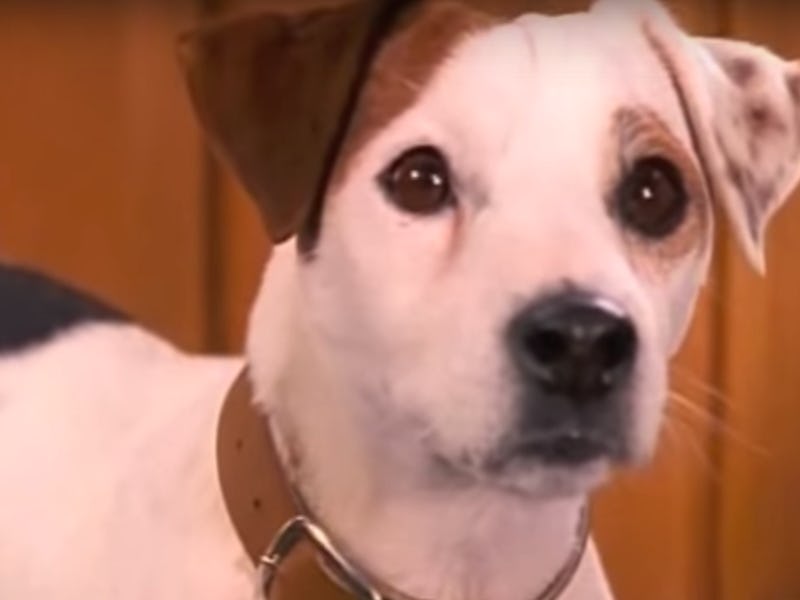6 Times The ‘Wishbone’ Episode Was Better Than The Book
Watch these essential episodes of the late-'90s PBS classic, and bask in the few times TV was better than literature.

It kinda seems familiar/ Like a story from a book. The situations that befell the pre-teen protagonists and their families in the frame stories of PBS’ iconic, sadly short-lived children’s series Wishbone in the late ‘90s certainly were. They were mirrored by elaborately staged literary scenarios, starring the Talbot family’s Jack Russell terrier, Wishbone. The fact that he was an actual dog was never addressed directly. Across Wishbone’s two dense seasons, fifty-four novels, plays, short stories, folk tales, and narrative poems were dramatized. Sometimes the plots of the works didn’t inspire a full-on, stand-alone enactment by Wishbone, but it was commonly accepted that the best ones always did.
Some formidable works of literature were taken on by the beloved show, but given the amount of times I watched these episodes in reruns as a kid, I can safely say that this group of ‘bone installments are certainly superior to the books they reference.
On the case
1. “The Pawloined Letter”/Edgar Allan Poe’s “The Purloined Letter”
You’ve gotta love a Wishbone whodunit. And though, unfortunately, we don’t get Wishbone in a deerstalker in this one, we do get Wishbone — with that upper-crust, pseudo-British voice he does — as Poe’s recurring detective-hero Dupin, hunting an incriminating letter that it hiding… right under his snout! I definitely couldn’t make that joke about the original story. Sorry, Edgar. The dog wins here.
2. “A Tail of Two Sitters”/Charles Dickens’ A Tale of Two Cities
Wishbone as Darnay, in trouble
One of Dickens’s duddiest novels — yet, somehow, often recommended high-school reading — A Tale of Two Cities’s French Revolution melodrama was rendered best when Wishbone played Charles Darnay, the golden-hearted nobleman ashamed of his upper-crust lineage. “You were born to the wrong family,” Madame DeFarge screams at a Jack Russell terrier. “Your whole breed must be destroyed.” A subtle dog joke at the height of the story’s drama: The mark of an excellent Wishbone episode.
3. “Bark to the Future”/H.G. Wells’ The Time Machine
I love H.G. Wells; he’s one of the greatest science fiction writers of all time. Seeing Wishbone scampering around the equivalent of an original series Star Trek set, bowtied, quipping in a full-on British accent and exploring crumbling, cobwebbed, post-apocalyptic libraries straight out of Zardoz or Battlefield Earth: well, there’s nothing as pleasurable. “I am Weena…you are man,” says one of the waifs of the decrepit, “indolent” future to Wishbone, a dog. Only in a Wishbone dramatization can you see that kind of bit.
4. “Homer Sweet Homer”/Homer’s The Odyssey
Wishbone as Odysseus, saving the day
I respect my man Homer, the Lin-Manuel Miranda of the B.C.’s. I’ve read and studied his (second) greatest opus. But nonetheless, “Homer Sweet Homer” is the most iconic Wishbone episode — next to its two-part Tom Sawyer-mimicking pilot — so I’d be remiss to exclude it here. When someone mentions The Odyssey, or when I see references to the poem in other art and media (say, the allusions peppered throughout Cabin Boy) I imagine Wishbone as Odysseus, in centurion helmet and battle armor, one-upping the drunken suitors in an archery contest, in the banquet hall. No one ever did myths and quests quite like the ‘Bone.
5. “Furst Impressions”/Jane Austen’s “Pride and Prejudice”
*“Darcy, I insist you dance with us.”
“Bingley, you know I have four left feet.” [grumble]*
Pride and Prejudice is an amazing book, though I actually prefer the meta overtones of Northanger Abbey, which Wishbone also takes on (The show was never afraid to go beyond the essential grade-school reading list). But can you reasonably claim reading Darcy is better than seeing Wishbone playing him? What an irascible stud!
6. “The Prince of Wags”/William Shakespeare’s Henry IV, Part 1
Wishbone, in mourning
One of those very adult Wishbones. Wishbone’s enactment of Shakespeare’s just-okay history is supposed to teach Joe about leadership on the basketball court. Except one thing is not totally like the other: Wishbone-Henry is busy killing people, and mourning the dead on a corpse-strewn battlefield. “O, I should have a heavy miss of thee, If I were much in love with vanity,” Wishbone says in battle armor, staring wistfully at Falstaff’s body, fully in view. It’s not quite as heavy as the sight of Joan about burn at the stake in “Bone of Arc,” but it’s pretty harrowing, Emmy-worthy stuff.
It’s a true shame that the series isn’t available to digitally rent on any outlet, but as you’ve seen above, you can watch the entirety of the show — in some form — on YouTube.